Description
What is HDPE?
HDPE stands for High-Density Polyethylene. It is a type of plastic which is a thermoplastic polymer made from petroleum. HDPE is known for its high strength-to-density ratio and is used in a variety of engineering and industrial applications.
What are the properties of HDPE?
- Durability: HDPE is a durable and tough plastic, making it suitable for applications where strength and resilience are essential.
- Chemical Resistance: HDPE is resistant to many chemicals, making it suitable for use in containers and pipes for transporting a wide range of substances.
- Weather Resistance: It has good resistance to UV rays and is not prone to environmental stress cracking, making it suitable for outdoor applications.
- Versatility: HDPE is a versatile material used in various industries, including packaging, construction, automotive, and agriculture. Common products made from HDPE include bottles, pipes, toys, containers, and more. It is also easy to machine and fabricate.
- Recyclability: HDPE is recyclable, and recycled HDPE is used in the production of new products.
- Low Moisture Absorption: HDPE has low moisture absorption, making it suitable for applications where moisture resistance is important.
- Lightweight: Despite its strength, HDPE is relatively lightweight, making it easy to handle and transport.
Can HDPE handle heat?
HDPE typically has a melting point in the range of 120 to 130 degrees Celsius (248 to 266 degrees Fahrenheit). While it can handle temperatures well within the range of typical outdoor and industrial applications, it may not be suitable for extremely high-temperature environments.
For applications requiring resistance to higher temperatures, other engineering plastics with higher heat resistance, such as polypropylene, polyethylene terephthalate (PET), or polyetheretherketone (PEEK), might be more suitable.
Is HDPE Plastic suitable for Food Grade applications?
Yes, HDPE (High-Density Polyethylene) is commonly used in food-grade applications. HDPE is considered a food-safe material because it is inert, meaning it does not react with or leach chemicals into food or beverages. It has several characteristics that make it suitable for food contact:
How strong is HDPE?
High-Density Polyethylene (HDPE) is known for its high strength-to-density ratio, making it a strong and durable material. The strength of HDPE can be influenced by various factors, including the specific grade of HDPE, the manufacturing process, and the intended application. Here are some general characteristics related to the strength of HDPE:
- Tensile Strength: HDPE has a high tensile strength, which means it can withstand pulling forces without breaking. The tensile strength of HDPE typically ranges from 20 to 37 MPa (megapascals), depending on the grade.
- Flexural Strength: HDPE also exhibits good flexural strength, allowing it to resist bending without permanent deformation. The flexural strength can vary but is generally in the range of 12 to 33 MPa.
- Impact Strength: HDPE is known for its excellent impact resistance. It can absorb and distribute impact energy, making it suitable for applications where impact resistance is crucial.
- Compressive Strength: HDPE has a high compressive strength, allowing it to withstand loads applied in a perpendicular direction. The compressive strength of HDPE can vary but is typically in the range of 15 to 40 MPa.
- Fatigue Resistance: HDPE exhibits good fatigue resistance, making it suitable for applications involving repeated stress or strain.
It’s important to note that the specific mechanical properties of HDPE can vary depending on the grade, processing conditions, and any additives incorporated during manufacturing. Engineers and designers often choose a HDPE grade based on the requirements of the specific application, taking into consideration factors such as load-bearing capacity, environmental conditions, and regulatory compliance.
Uses of HDPE Rod:
- Machined Parts and Components
- Packers, rollers, lifting blocks
- Bushings and Bearings
- Seals and gaskets
- Pump components
- Pipes and fittings
- Electrical insulation
- Medical and food manufacturing applications
What colour is HDPE Engineering Rod?
HDPE Rod is available in Natural (White) and Black
Environmental and end of life considerations
HDPE is a highly recyclable plastic. The recycling process for HDPE involves melting and reforming the material, and recycled HDPE can be used to manufacture a variety of products, including new HDPE items.
Why choose BB Engineering Plastics as your Plastic Rod Supplier?
With 25+ years’ experience in the supply of engineering plastic sheet and rod, Busy Bee is proud of our ability to source and supply small batch quantities quickly and efficiently to the Australian market. So, if you are looking for cut to size engineering solid plastic rod supplier, Busy Bee is your one stop shop.
Check out our other Plastic options online:
Not sure which option is best for you? Please Contact Us and our friendly team will be happy to help.
DISCLAIMER: It’s always the clients decision to ensure that the materials are right for the specification.


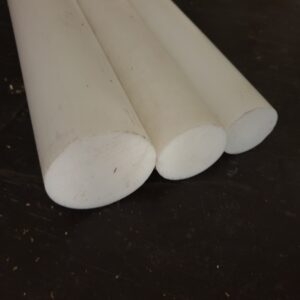
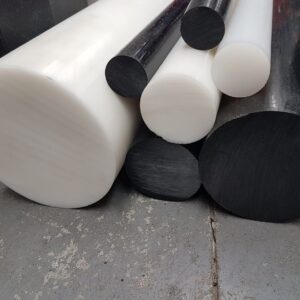
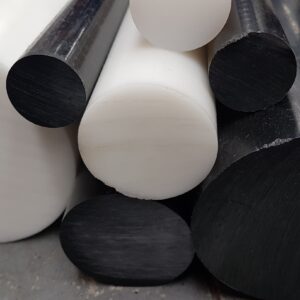
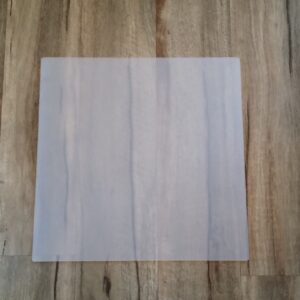
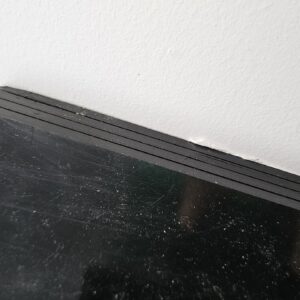

Reviews
There are no reviews yet.